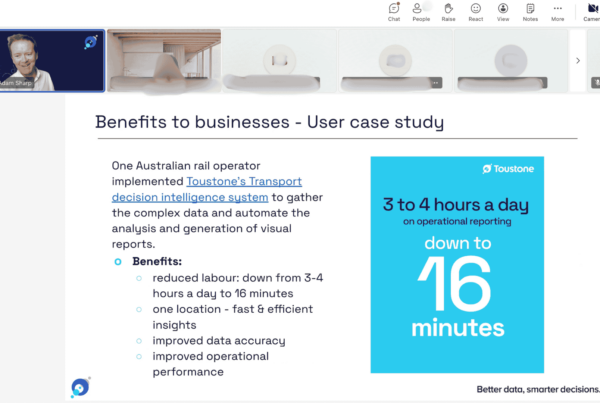A key driver of productivity in any organisation is recognising where your business is succeeding and where it is preventing you from succeeding. Gathering insights from your data can give you an understanding of where your business sits, and using the compounding effect of data will make clear what actions you can take to increase productivity in all areas.
Productivity in the Australian Meat Industry
The Australian Meat Industry runs at high cost compared to international competitors. Cattle prices have increased throughout 2020 so that Australia is home to some of the most expensive cattle in the world. Increasing productivity to use less labour and energy would drive these costs down. Some traditional ways of enhancing productivity are through improving the pasture, refining the genetics of the stock, and using new technology or upgraded equipment.
But one thing is critical to increasing productivity now and in the future: Data. Applying the compounding effect of data to this high-cost industry shows us just how important data is to the future of the industry.
The compounding effects of data
As a recent article discussed, the three compounding effects of data are:
- Hindsight
- Insight
- Foresight
Applying hindsight, past data can be analyzed to assess what has happened. Knowing what happened positions you to make better decisions in future. This is the basic level of Decision Intelligence (DI). Regarding high costs in the meat industry, hindsight analytics would show how each component contributed historically to the total cost and reveal areas that could be improved to increase productivity.
With insight, we go a step further to understand why it happened. Now we have an understanding of the big picture – what, when, and why. The data tells the irrefutable story, removing emotion or gut feelings from the decision-making process and pointing the way to desirable outcomes. For instance, food safety and biosecurity are major points of contention in today’s global environment and Australian processors have the advantage of solid, trustworthy systems. While it may increase the cost, it is highly desirable in the current times and therefore may be a selling point worthwhile to buyers even at a cost higher than the competition’s. Using insight to understand why justifies this aspect of productivity.
Foresight uses predictive and prescriptive analytics to then help us understand what will happen – and what we can do to make sure it happens. It points you to the actions that need to be taken. Each of the components affecting productivity, whether it be genetics of the stock or management strategies, are assessed. This level of analysis allows you to take preemptive action to prevent undesirable outcomes and encourage desirable ones.
Utilizing the compounding effect of data ensures greater insight and foresight to improve efficiency and therefore lead to increased productivity. This is the bases of Decision Intelligence.
Data is the future of the Meat Industry
As technology advances and industries increasingly rely on data, it is critical for the meat industry to maximise gains utilising their data. Not only is it important in order to efficiently increase productivity, but the quality and transparency of the data is important in order for genetic research and advanced technology to invest in the meat industry.
The data is already there, it is simply a matter of analysing and using it. With the compounding effect of data, each stage builds on the previous one. Starting with the right data foundation that allows you to use hindsight gives you the ability to generate insights and make the next logical step to foresight. If you would like to learn more about DI in Agriculture, click here.




